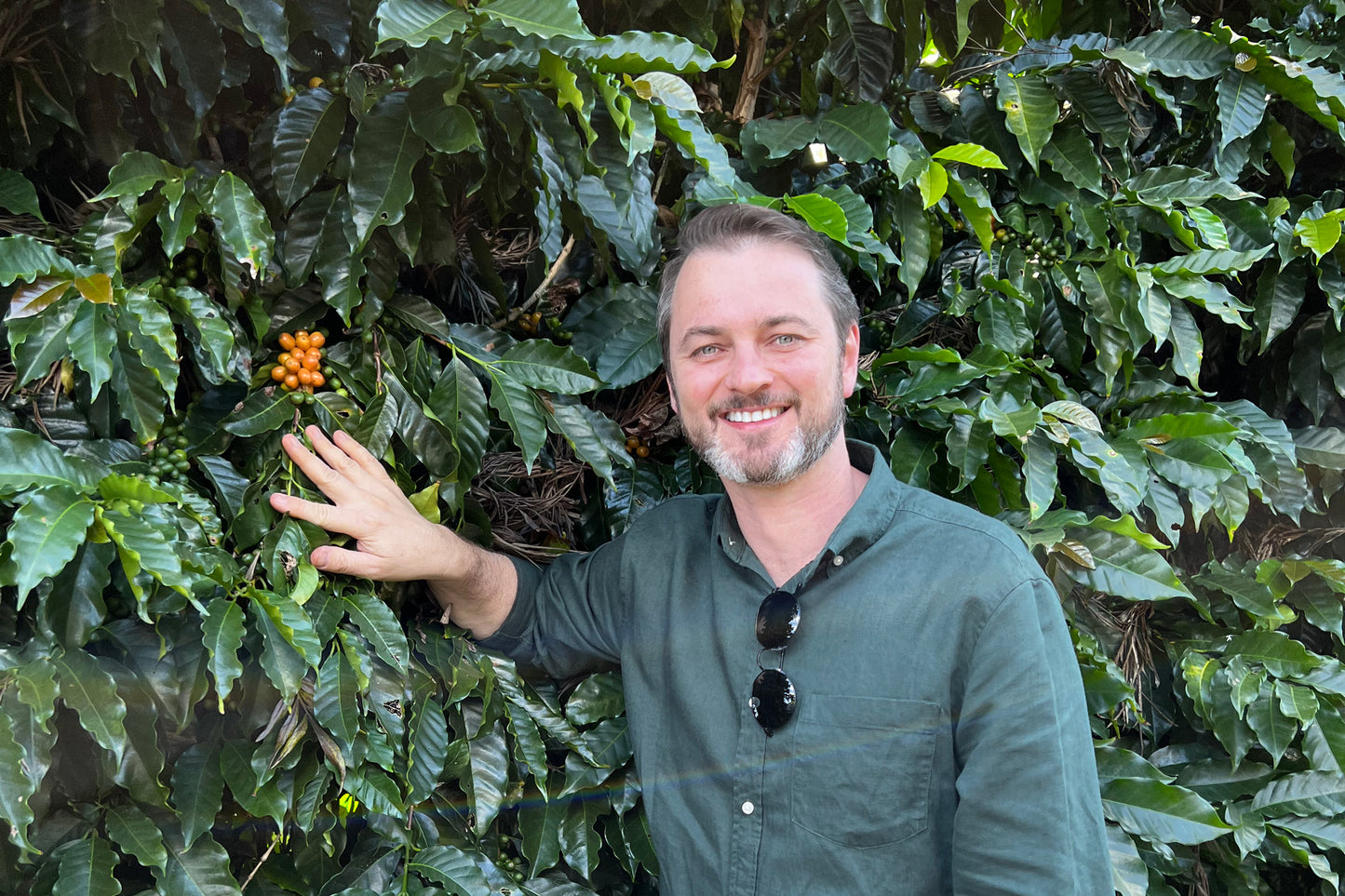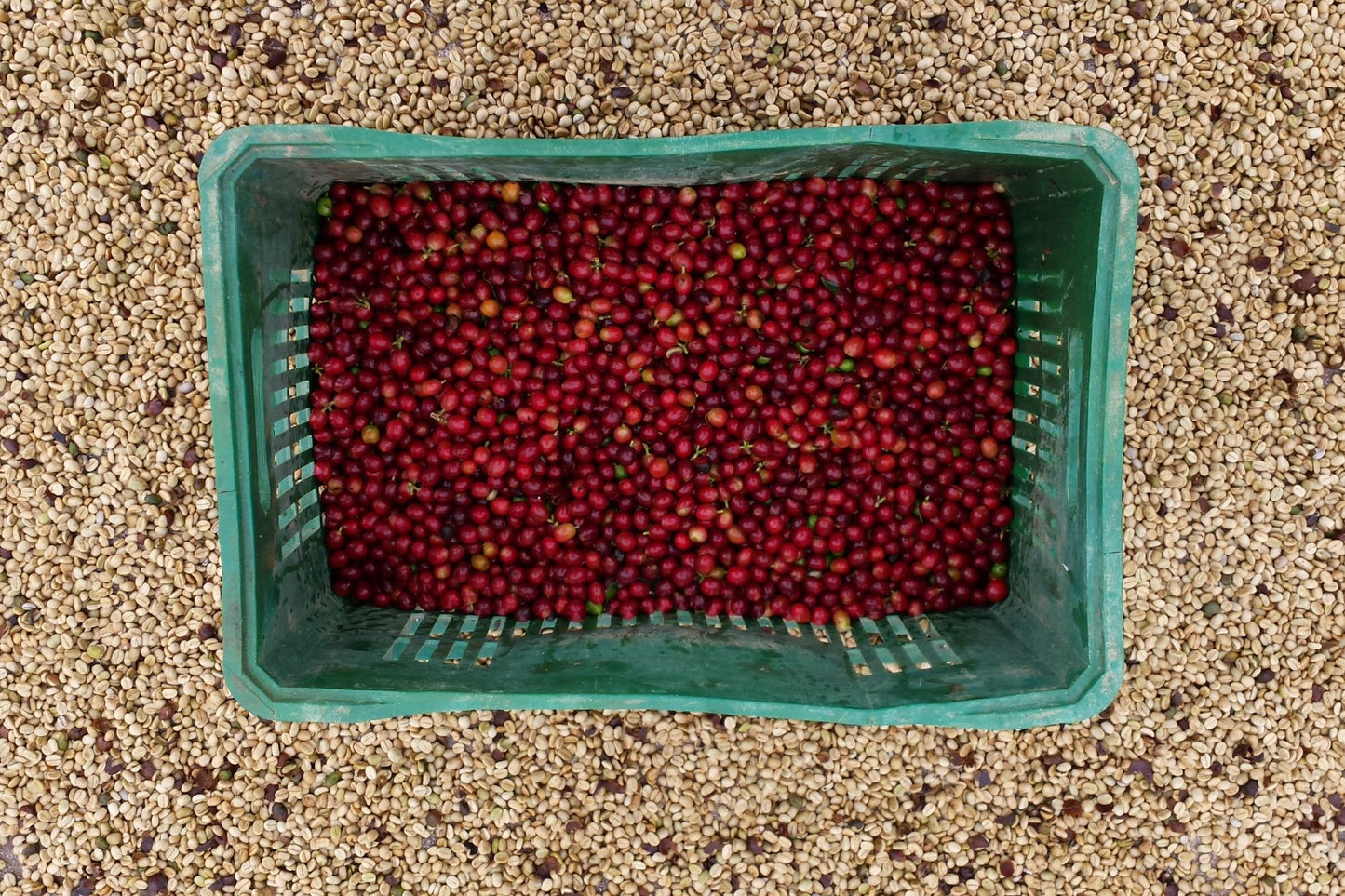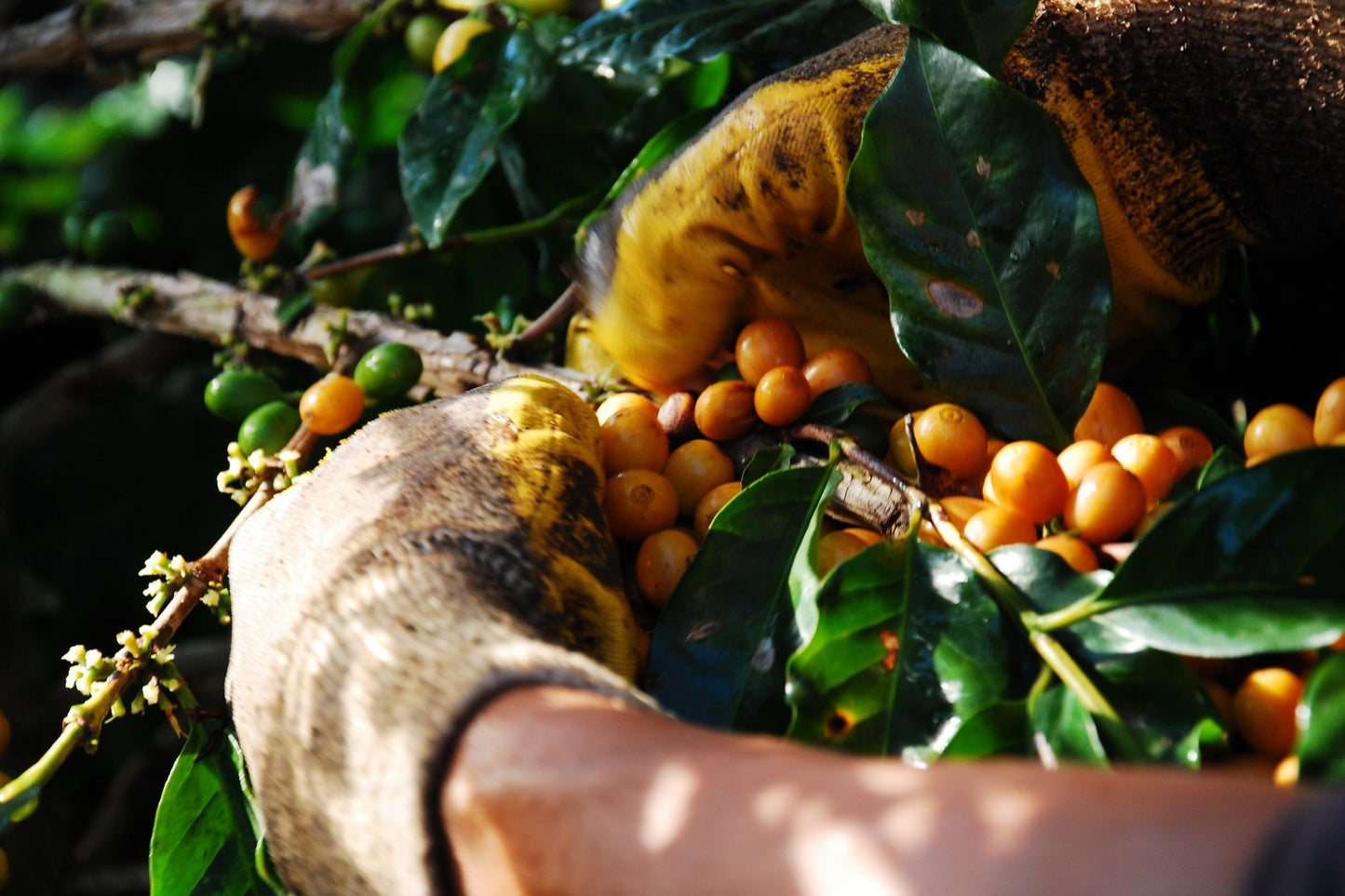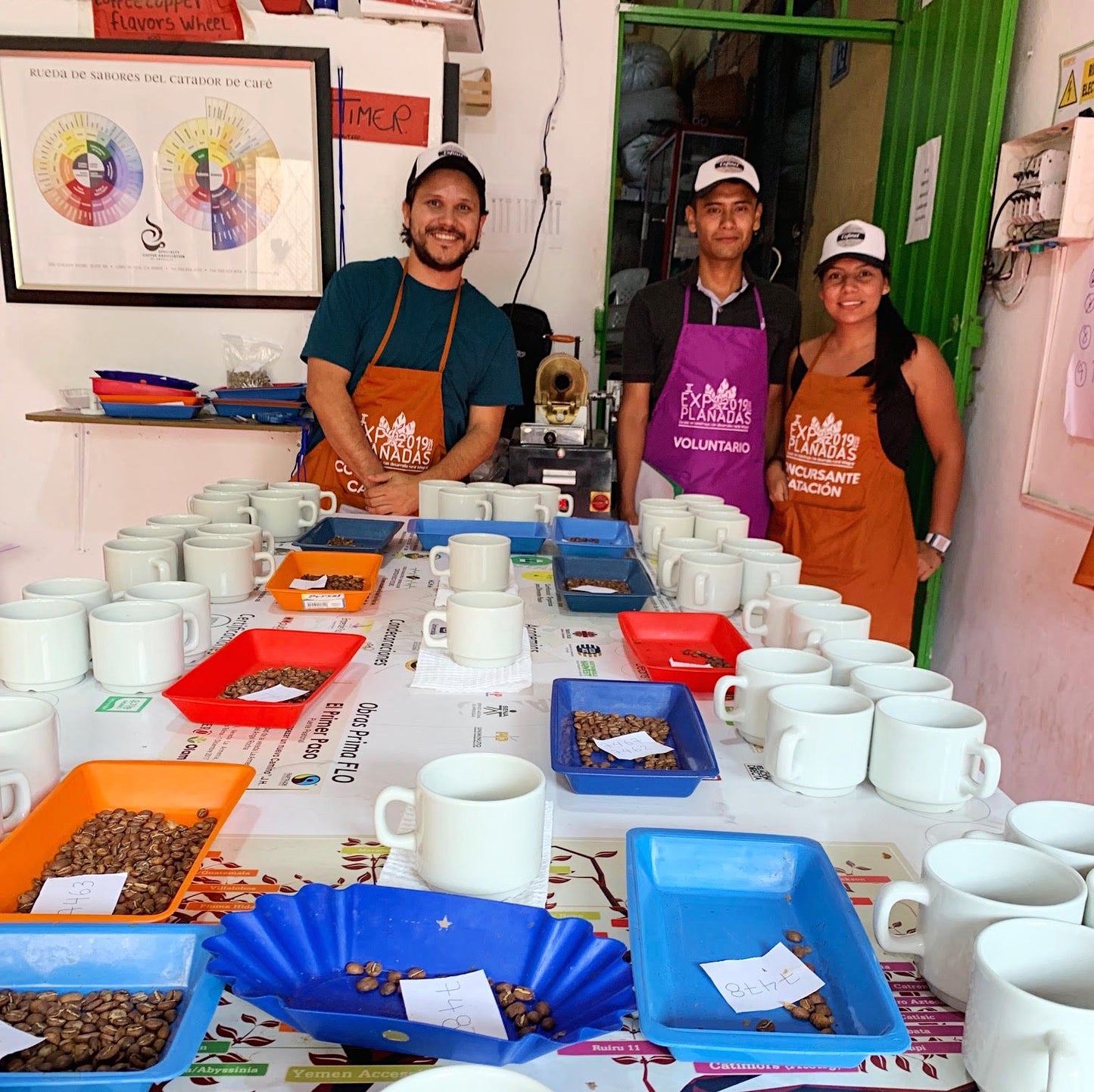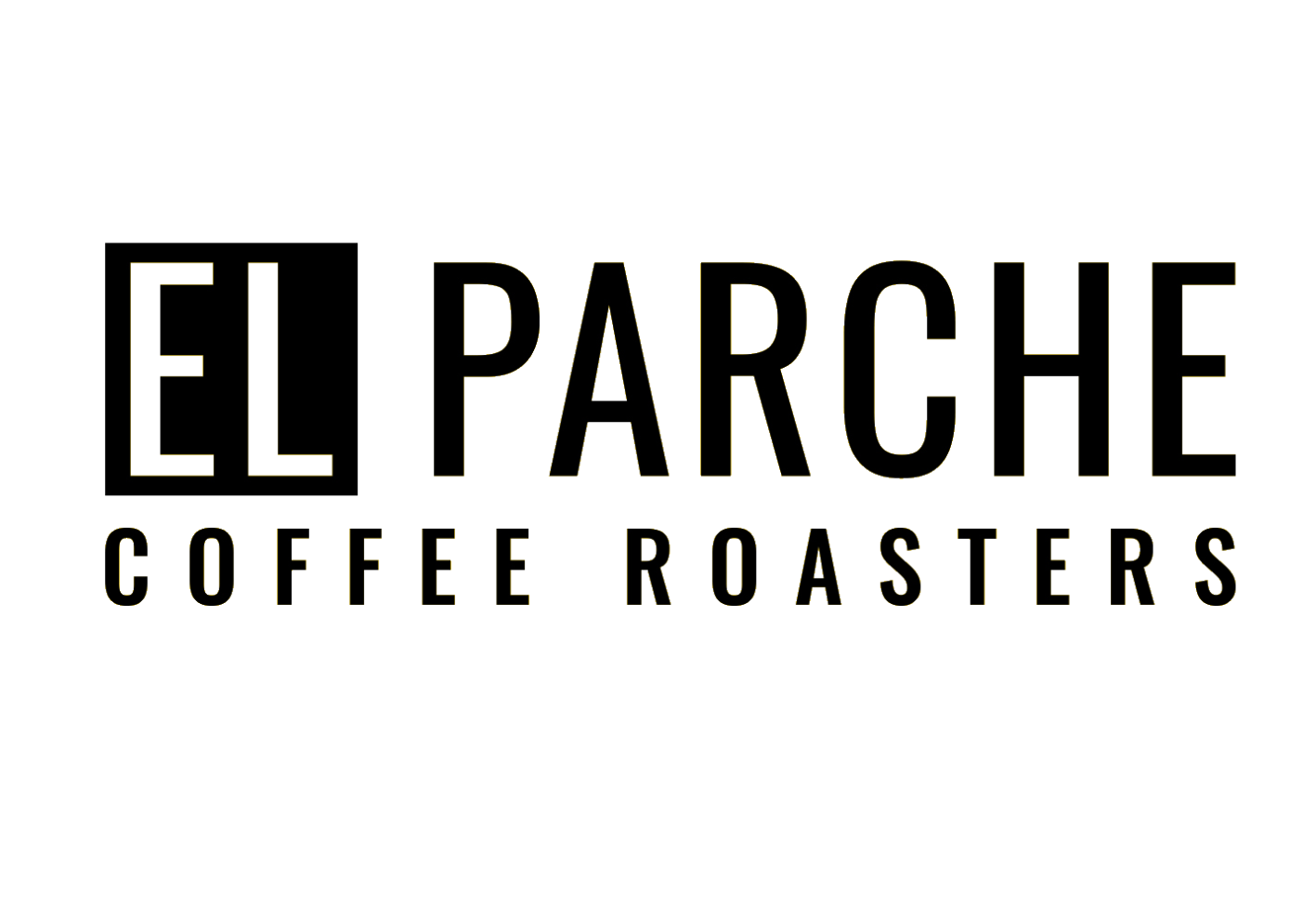El Parche
El Recreo - Espresso Blend
El Recreo - Espresso Blend
Couldn't load pickup availability
Dark chocolate, sweet caramel and orange
Espresso Roasted
Varieties: Caturra, Castillo, Catuaí and Topazio
Processes: Washed & Natural
Suggested methods: Stove top, Espresso, french press
Colombian Coffee
The coffee
Volcano
This program is incredibly special for a few reasons. Nariño has the highest altitude at which coffee is grown in Colombia which also means temperatures are quite low. This climate is perfect for the coffee cherry as the bean matures slowly it can have a higher concentration of sugar. Another relevant factor that makes the coffee from this region so unique is the rich soil.
Unlike many regions in Colombia, Nariño’s soil is extraordinarily rich in volcanic ash mainly due to the high volcanic activity in the area. Typically, volcanic ash in the soil is rich in nutrients and contributes to a much healthier plant and higher complexity in the cup.
The average size of a farm in this zone we work at is approximately less than 1 hectare to 1.5 hectares.
Brazilian Coffee
The coffee
Fazenda Progresso is a beautiful farm nestled in the Chapada Diamantina mountain range in the heart of Bahia. The farm sits on a plateau at 1,150m above sea level and is surrounded by the Chapada Diamantina National Park, known for its mountainous cliff formations (Chapada) and 19th-century diamond mining (Diamantina). This elevation plays a key role in the quality of the beans, as does the average temperature variation of 10°C, with hot days and cool nights, providing the ideal conditions for slow cherry maturation, giving time for natural sugars to develop, resulting in a sweet and complex cup.
HOW THIS COFFEE WAS PROCESSED
This coffee was carefully hand-picked by a specially trained team between June and August. It was then natural-processed. The cherries were selected at the peak of ripeness, and then carefully dried on meticulously clean patios under the protection of a greenhouse and turned regularly for 24 hours. The coffee was then dried very slowly and thoroughly in mechanical dryers for 18 hours and then rested for 6 hours. This process was repeated for a total of 40 hours until the coffee reached 12% humidity. Progresso has done a lot of experimentation with drying and has found that this method yields the very best results and ensures that the coffee holds its quality over an extended period of time.
Once dry, the coffee was hulled to remove the dried fruit skin, cupped by the QC team and placed in large silos to rest. When the coffee was approved and ready for export it was processed at Fazenda Progresso’s dry mill which is also located on the farm.
ORIGIN: Colombia - Brazil
REGION: Volcano Nariño - Chapada Diamantina
VARIETY: Caturra, Castillo, Catuaí and Topazio
PROCESS: Washed & Natural
SUGGESTED METHODS: Espresso, Stovetop, Plunger

